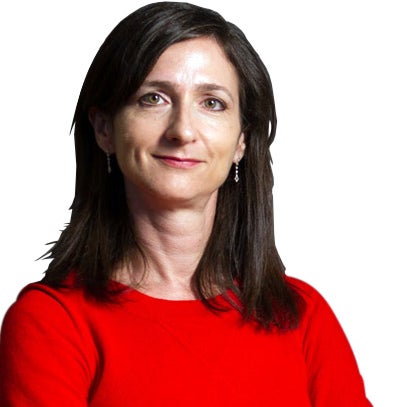KINGSTON, R.I.- November 10, 2017-Sara Seager, one of Time magazine’s 25 Most Influential People in Space, will present a lecture titled, “The Search for Another Earth,” as part of this year’s Honors Colloquium at the University of Rhode Island. The lecture will be held on Nov. 28 at 7 p.m. in Edwards Hall, 64 Upper College Road.
Seager is a professor of earth, atmospheric, and planetary science at the Massachusetts Institute of Technology and a 2013 MacArthur Fellow. The MacArthur Fellowship Program awards unrestricted fellowships to talented individuals who have shown extraordinary originality and dedication in their creative pursuits and a marked capacity for self-direction.
The focus of Seager’s research revolves around theory, computation, and data analysis of exoplanets. Exoplanets are planets that exist beyond our solar system and orbit around stars other than the sun. Some of her most substantial contributions to the field of exoplanet characterization include work that led to the first detection of an exoplanet atmosphere. Seager also works in space instrumentation and space missions for exoplanets.
Referred to by NASA as an “astronomical Indiana Jones,” Seager has published two textbooks on the topics of extrasolar planets and their atmospheres. Seager earned her bachelor’s degree from the Math and Science Physics Specialist Program at the University of Toronto and her Ph.D. in astronomy from Harvard University.
In addition to studying exoplanets and their atmospheres, Seager is frontiering advanced hardware design and space mission projects, including ExoplanetSat. This particular endeavor aims to build low-cost “nano-satellites” to observe planetary transits. Essentially, the concept involves dozens of cheap replicas of an extremely small space telescope that will provide the ability to explore space in ways like never before.
The ultimate goal of Seager’s research is to find an earth-like exoplanet and determine that there is life on it. In order for life to be sustainable on an exoplanet, it would have to be one of reasonable mass that orbits its star within a comfortable temperature that is not too hot or too cold and would allow water to remain liquid.
Titled, “Origins: Life, the Universe and Everything,” this fall’s colloquium addresses such questions as “Where did we come from? How did the universe begin? How did intelligent, rational beings arise? And from such humble beginnings, how did we develop a mind that can ask these big questions? Now in its 54th year, the colloquium is the University’s premier public lecture series, offering lectures on most Tuesday evenings through Dec. 5. Seager’s lecture will be shown on the web at stream.uri.edu
Sponsors: Honors Program • URI Office of the President • URI Office of the Provost • 125th Anniversary Steering Committee • URI Foundation • The Mark and Donna Ross Honors Colloquium Humanities Endowment • The Thomas Silvia and Shannon Chandley Honors Colloquium Endowment • URI College of Arts & Sciences • URI College of Pharmacy • URI John Hazen White Sr. Center for Ethics and Public Service • URI Gender and Women’s Studies Program • URI Office of Community, Equity and Diversity • URI College of Engineering • URI College of the Environment and Life Sciences • URI College of Health Sciences • URI College of Business Administration • URI College of Nursing • URI Division of Student Affairs • URI Department of Communications and Marketing • URI Department of Publications and Creative Services • URI ITS Instructional Technology and Media Services • URI Feinstein College of Education and Professional Studies • George and Anne Ryan Institute for Neuroscience.
Olivia Ross, an intern in the Marketing and Communications Department at URI and public relations major, wrote this press release.

